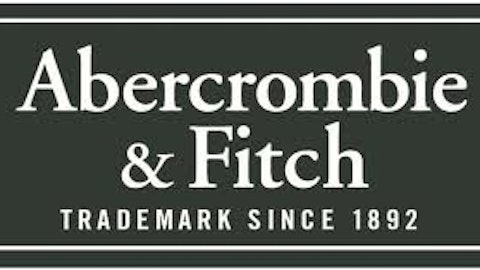Should a surgeon operate on his or her own family member? Is a psychologist’s spouse a good candidate for his or her own couch? Professional and personal relationships usually shouldn’t mix — the emotional component too easily undermines sound decisions. When it comes to public companies’ operations, investors should look for unbiased, transparent leadership and truly independent boards of directors.

All in the family
For several years, activist shareholders have pushed for board diversity at Urban Outfitters, Inc. (NASDAQ:URBN). Although the retailer caters to a heck of a lot of female customers, not one woman has served on the company’s board of directors.
This year, activist investors like Calvert Investment Management, the Connecticut Retirement Plans and Trust Funds, and the New York State Common Retirement Fund have continued the fight to get at least one female or minority director on the all-male board.
There’s been an interesting twist on the theme this year, though. Urban Outfitters, Inc. (NASDAQ:URBN) has announced a move in the general direction, nominating a female for its board of directors.
However, there’s a catch. The nominee isn’t just any woman, and it’s most certainly not an “independent” female. Margaret Hayne just happens to be married to co-founder, chairman, and CEO Richard Hayne.
Hayne (Mrs., that is) has headed up the Free People concept for years; granted, she does possess deep knowledge of the company and its customer demographics. At least there’s that. Still, “all in the family” relationships at public companies present the possibility of conflicts of interest, plain and simple.
According to the shareholder proposal filed at Urban Outfitters, Inc. (NASDAQ:URBN), retailers The Gap Inc. (NYSE:GPS), Nordstrom, Inc. (NYSE:JWN), and Abercrombie & Fitch Co. (NYSE:ANF) each have at least one woman or minority on their board of directors.
Urban Outfitters, Inc. (NASDAQ:URBN)’s shareholder meeting occurs today, so it should be interesting to see how many shareholders voted for the proposal, which pushes for a diverse board that is truly independent instead of one that’s throwing a female company insider into the mix in a feeble attempt to placate shareholders.
Independence run amok
Although Abercrombie & Fitch Co. (NYSE:ANF) may have a better grasp on diversity than Urban Outfitters, Inc. (NASDAQ:URBN) (depending on how you define it, given rumblings about the retailer’s “look” policies over the years), all’s not well there, either. In fact, it looks even worse.
Conflicts of interest can take many forms, and in most cases shareholders who read their financial filings are at least aware of them. “Related party” information and other disclosures generally include all you need to know about nepotism, interlocking business relationships, and so forth.
However, Abercrombie & Fitch Co. (NYSE:ANF) reportedly offers a shocking example of more shadowy conflicts of interest. In this case, the individual in question isn’t particularly on the radar or the payroll.
According to BuzzFeed, anonymous executives who work for Abercrombie & Fitch Co. (NYSE:ANF) claim CEO and Chairman Michael Jeffries basically deputized his significant other to help lead the company. The problem is, Matthew Smith is mentioned nowhere in the company’s proxy statement; he’s neither an employee nor a director.
Smith reportedly has access to private information and allegedly wields strong influence over parts of the business, yet there is no accountability. If something goes wrong, you can’t fire someone who was never hired. For more, see the BuzzFeed report, which gives examples of Smith’s allegedly shocking level of behind-the-scenes influence.
A lack of accountability to shareholders isn’t exactly a new theme at Abercrombie & Fitch Co. (NYSE:ANF). Jeffries’ pay package has been outrageous for years now. Last year, the majority of Abercrombie & Fitch Co. (NYSE:ANF) shareholders voted against his compensation. The treatment of the retailer’s corporate jet perk was yet another high-profile example of disregard for shareholder money; Abercrombie’s board agreed to pay Jeffries $4 million in cold, hard cash to make up for limiting his personal use of the jet several years ago.
Obviously, management doesn’t seem in the least bit concerned with how its actions look to shareholders.
This is even more surprising because Abercrombie’s business performance has been choppy over the years. The retailer’s most recent quarter was the latest example: It posted a loss, a 10% drop in sales, and a 15% plunge in same-store sales.
The ties that bind
Overall, I believe Urban Outfitters, Inc. (NASDAQ:URBN) is a stronger and basically more well managed retailer than Abercrombie & Fitch, although last August I finally sold my Urban Outfitters shares after holding for six years. Both companies indulge in occasionally offensive and mean-spirited controversies with their product lines, and I finally had had enough of Urban’s shenanigans.
Regardless of which is the better stock idea, though, both retailers have governance issues, plain and simple. Conflicts of interest may not always destroy companies, and some family businesses can work. However, it’s risky business, and can deteriorate or stagnate business over the long haul. Fights and breakups are just the tip of the iceberg when it comes to things that can go wrong.
The highest-functioning companies’ managements and boards should be comprised of robust groups of thinkers, not homogeneous groups of yes-men and yes-women who are all beholden to one another — sometimes even by emotional or familial ties. Independence and accountability make better groups and better judgments.
The article It’s Complicated: Check Out These Retailers’ Relationship Statuses originally appeared on Fool.com.
Alyce Lomax has no position in any stocks mentioned. The Motley Fool has no position in any of the stocks mentioned.
Copyright © 1995 – 2013 The Motley Fool, LLC. All rights reserved. The Motley Fool has a disclosure policy.

